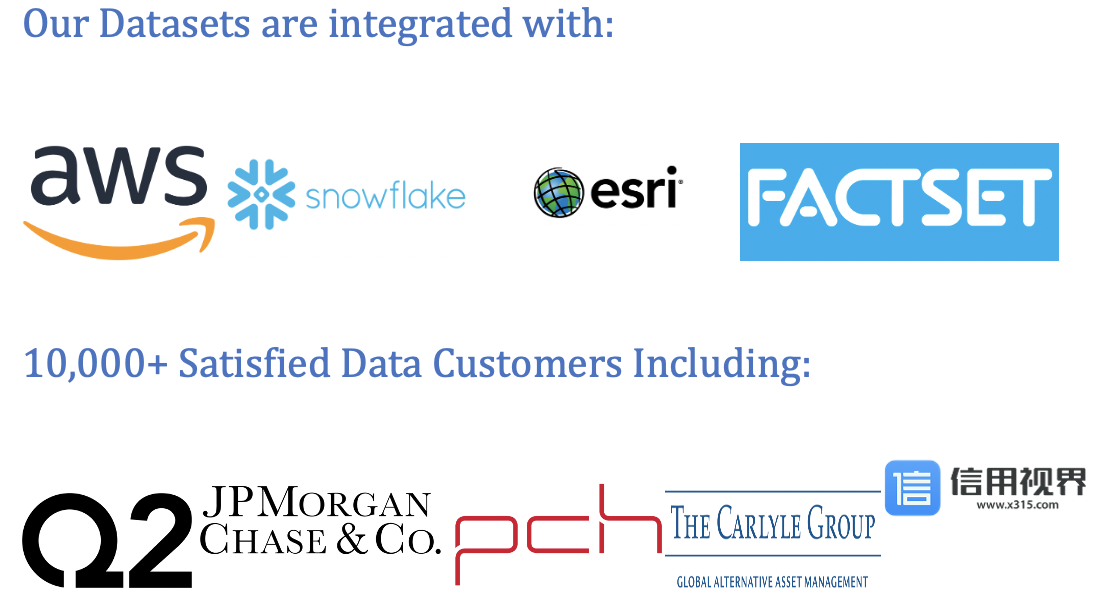
Top Wealth Data Providers
Understanding Wealth Data
Wealth Data encompasses a broad spectrum of financial information collected from multiple sources, including government agencies, financial institutions, tax authorities, market research firms, and wealth management firms. It includes data on personal finances, such as income, savings, and investments, as well as corporate finances, including revenues, profits, and assets under management. Analyzing Wealth Data enables stakeholders to assess wealth distribution patterns, track changes in asset ownership, and evaluate the economic well-being of individuals and communities.
Components of Wealth Data
Key components of Wealth Data include:
- Income and Earnings: Information on wages, salaries, bonuses, dividends, interest income, rental income, and other sources of earnings contributing to individual or household income levels.
- Assets and Liabilities: Records of financial assets (e.g., stocks, bonds, mutual funds, retirement accounts) and non-financial assets (e.g., real estate, vehicles, collectibles) owned by individuals or institutions, as well as outstanding debts and liabilities (e.g., mortgages, loans, credit card debt).
- Net Worth: Calculation of net worth by subtracting total liabilities from total assets, providing a measure of an individual's or entity's financial wealth and liquidity.
- Investment Portfolios: Details of investment holdings, asset allocations, risk profiles, and performance metrics for individuals, families, businesses, and institutional investors.
Top Wealth Data Providers
- Leadniaga : Leadniaga offers advanced wealth management solutions, providing Wealth Data analytics tools and platforms for financial advisors, wealth managers, and investment firms. Their platform integrates with financial data sources to aggregate, analyze, and visualize wealth data, enabling personalized financial planning and portfolio management services.
- Bloomberg Wealth: Bloomberg Wealth offers financial data and analytics services for wealth management professionals, providing real-time market data, investment research, and portfolio management tools. Their platform delivers insights into investment opportunities, market trends, and economic indicators to help investors make informed decisions.
- Morningstar Direct: Morningstar Direct offers investment research and portfolio analysis software for asset managers, financial advisors, and institutional investors. Their platform provides access to comprehensive financial data, including fund performance, holdings, expenses, and risk metrics, facilitating investment decision-making and performance monitoring.
- Wealth-X: Wealth-X provides wealth intelligence and prospecting solutions for private banks, luxury brands, and nonprofit organizations. Their database contains profiles of high-net-worth individuals (HNWIs) and ultra-high-net-worth individuals (UHNWIs), including their assets, philanthropic activities, and lifestyle preferences, enabling targeted marketing and relationship management strategies.
Importance of Wealth Data
Wealth Data is essential for individuals, businesses, and policymakers for the following reasons:
- Financial Planning: Supports financial planning and wealth management activities by providing insights into income streams, asset allocation strategies, risk management, and retirement planning options.
- Investment Decision-Making: Informs investment decisions by analyzing market trends, asset valuations, economic indicators, and risk-return profiles to identify investment opportunities and optimize portfolio performance.
- Economic Analysis: Facilitates economic analysis and policy formulation by assessing wealth distribution patterns, income inequality trends, consumer spending behavior, and economic growth prospects.
Applications of Wealth Data
The applications of Wealth Data include:
- Wealth Management: Guides wealth management strategies, including asset allocation, investment selection, tax planning, and estate planning, to help individuals and families achieve their financial goals and objectives.
- Market Research: Provides market research insights for financial services firms, luxury brands, and consumer goods companies seeking to understand affluent consumer preferences, spending patterns, and lifestyle trends.
- Philanthropy and Giving: Supports philanthropic initiatives and charitable giving efforts by identifying potential donors, assessing their philanthropic interests, and facilitating targeted fundraising campaigns.
Conclusion
In conclusion, Wealth Data serves as a valuable resource for understanding financial behaviors, investment trends, and economic dynamics in today's global economy. With top providers like Leadniaga and others offering advanced wealth management solutions, stakeholders can leverage Wealth Data to optimize financial planning, investment decision-making, and wealth preservation strategies. By harnessing the power of Wealth Data effectively, individuals, businesses, and policymakers can navigate financial markets, mitigate risks, and achieve long-term financial security and prosperity.
Our Datasets are integrated with :



10,000+ Satisfied Data Customers including :








